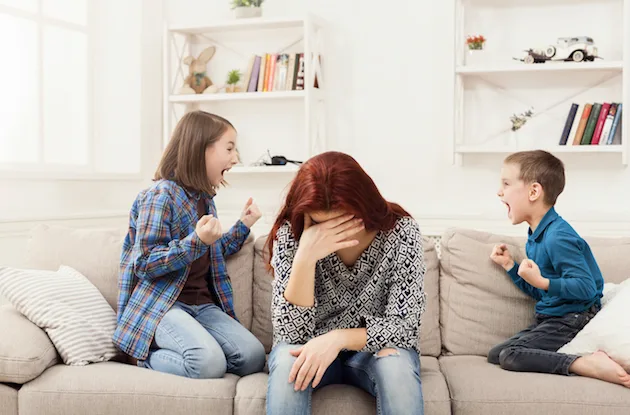When kids are on medication and use prescription drugs for any of their diagnoses, it is important for parents and doctors to explain the drugs and its purpose to the child, ensuring the child understands why he or she is on medication and how the prescription drug can help certain symptoms.
|
Barnett’s book explores how medications during childhood have a long-lasting impact, even affecting one’s sense of self in adulthood. |
When I began researching a book about kids’ experiences growing up on psychiatric medications, I found many of the young adults I interviewed were tongue-tied. They weren’t just shy. I, too, had trouble when it came to summing up my “relationship” with medication—even though I’d been struggling with depression and anxiety since I was 12, and taking meds for both conditions since I was 17.
I came to realize that kids who take medications growing up typically don’t learn how to communicate effectively about those drugs—to explain clearly and precisely how they feel about the drugs and why. Doctors and therapists often don’t make in-depth discussions about meds part of treatment, especially as more and more psychiatrists limit visits to 15-minute “med checks.”
That’s why it’s crucial for parents to talk with their kids about their medications. There are many benefits. For one, ongoing conversations help kids understand their conditions and why they need to take their meds as prescribed. Kids also learn to communicate with you and their doctors about side effects and concerns about treatment. And, with time, they grow more aware of their symptoms and how meds affect them.
Here are six tips on how to talk to your kids about their meds, garnered from my own experience and research and a wide variety of experts, to make talking with your kids about their meds as productive and helpful as possible.

1. Explain the need for meds in a way your child can understand
It’s vital to explain to kids why they’re taking medication. How you do that depends on your child’s age and developmental level. For a young child or one whose capacity for understanding is limited, you can keep it simple. With an older kid, you should explain a bit more about his condition, how the medication works, and emphasize that taking the medications just as the doctor prescribed them is crucial for the drugs to work effectively.
If you need more specific advice on how to explain the nature of your child’s disorder or how the medication works, ask his doctor or therapist for tips. You can always alter the recommendations to suit your child’s style of listening and learning.
2. Listen to kids’ opinions and concerns about their meds
Explain that even though medications are meant to help, not hurt, they sometimes have side effects. Tell your child to alert you right away if he or she feels uncomfortable or experiences a change in symptoms.
Also make it clear that physical side effects aren’t the only ones that matter. If your child has any worries about how medications will affect—or are affecting—her personality, friendships, performance at school, or anything else in her life, she should know to tell you. When she does, let her know you’re taking her worries seriously (you should also relay the concerns to her doctor or therapists and enlist them in reassuring your child or explaining necessary information).
Kids or teens who guard their privacy more closely may be reluctant to discuss their medications in detail. In that case, make sure your child has a trusted adult, such as a therapist, school psychologist, or doctor, whom she feels comfortable opening up to and who can help communicate important information to the prescribing physician.
3. Make it clear meds aren’t a guaranteed quick fix.
With older children, or those who are more developmentally advanced, you should make sure they understand that the first medication they try won’t likely be a magic solution. Explain that medications don’t always work right away, that the dosage might need adjusting, and that they might even need to try multiple meds before they find one that helps.
Also explain that medication is just part of the picture when it comes to relieving troubling symptoms. Ideally, you’ll have a comprehensive treatment plan that involves some kind of therapy, behavior and family interaction strategies to practice at home, and possibly accommodations at school. Kids should understand that popping a pill isn’t going to make anyone’s problems instantly vanish, but that there are other methods that can improve their mood, outlook, and relationships.
I wish I’d had a little more help understanding that meds weren’t a quick—or a permanent—fix when I began experiencing severe anxiety shortly after college. I was crushed to realize that Prozac, which had worked beautifully for five years, couldn’t control my symptoms. Having improved so much on Prozac, the first drug I had taken, I wasn’t prepared for the years of trial and error that followed. (On the plus side, after having rejected therapy as ineffective during high school, my anxiety flare-ups and medication trials made me more willing to give it a serious try, as well as to commit to other self-care strategies like regular exercise, yoga, and meditation.)
4. Stay flexible
Putting your child on medication shouldn’t be a set-in-stone decision. Check in regularly with your child’s prescribing doctor to relay your own feedback and your questions and concerns about the treatment, as well as any your child may have. And let your child know that he needn’t stay on a medication that causes really troubling side effects, or seriously threatens his sense of himself. That doesn’t mean he can just quit the drug, of course, but you can help him understand that there are options: changing dosages, adding new medications, or switching to different ones.And if medication really doesn’t work out, there are many other treatment modalities, including proven therapies, to try.
Sometimes doctors recommend trying short “medication vacations,” especially with shorter-acting stimulant drugs for behavioral conditions like ADHD. They may also advise seeing how children fare tapering off their meds altogether to see if they’ve outgrown or overcome their symptoms.
That’s what happened with Alex, who grew up in Long Island and Brooklyn and began taking an antidepressant for OCD, anxiety, and depression when he was 10. Five years later, Alex, his mom, and his doctor all decided he was well enough to try tapering off the drug. Alex did well for quite some time, but three years later, at 18, he had a severe breakdown. The breakdown was especially devastating for him because he’d assumed that going off medication meant he was better—that he’d outgrown his old problems.
Alex’s assumption is understandable, but he might have found his new symptoms less crushing if his doctor, psychologist, or his mom had explained to him earlier that even if he did just fine for a while off medication, he might need to restart treatment at some point. Kids sometimes outgrow their symptoms or improve enough to go off medication or reduce dosages. But it’s also true that symptoms often change or worsen as they get older, necessitating new meds, new doses, or going back on meds after a hiatus.
5. Keep the conversation going
Talking with kids about their medications shouldn’t be a one-time conversation that happens when they get their first prescription. It’s important to check in with them periodically, especially if treatment goes beyond an initial medication trial.
Over time, it’s easy to get complacent and assume that if your child doesn’t come to you with concerns, he or she is doing fine. But kids don’t always voice their worries because they’re afraid of worrying their parents or they just want to keep some things private. You can let kids know you respect their privacy, but gently touching base is prudent. Talks don’t only have to focus on the negatives of meds, either. Knowing when medications are helping is important so you can report back to your child’s doctor, and also so you can help your child realize that she’s making progress.
Continuing to check in about medication effects is especially important if drugs are switched or added, and also as kids mature. What bothered them—or didn’t bother them—with one drug or when they were younger might change radically as they develop cognitively, psychologically, and physically.
6. Make kids a part of their treatment
As kids gain better communication skills, as well as enhanced awareness of their symptoms and medication effects, you can begin to solicit their opinions about treatment decisions. With younger children, you can report their feedback to the prescribing doctor; as kids get older, encourage them to talk to the doctor directly.
Making kids partners in their treatment helps prevent them from resenting their medications and possibly even quitting them on their own (this is especially important during adolescence, when asserting independence is a natural part of development). If your child stays on medications through adolescence and into young adulthood, gradually teaching him to take responsibility for monitoring his own symptoms, interacting with doctors, and seeking out other methods of coping and self-care will be a very wise investment.
Kaitlin Bell Barnett is a freelance writer based in Brooklyn. Her book, “Dosed: The Medication Generation Grows Up,” was hailed by the American Psychological Association as “an honest, thought-provoking attempt to present the complexity and depth of an extremely challenging and ambiguous area of modern life.” Barnett also writes about young people and psychiatric medication at My Meds, My Self, a blog she founded at Psych Central: blogs.psychcentral.com/my-meds.






















